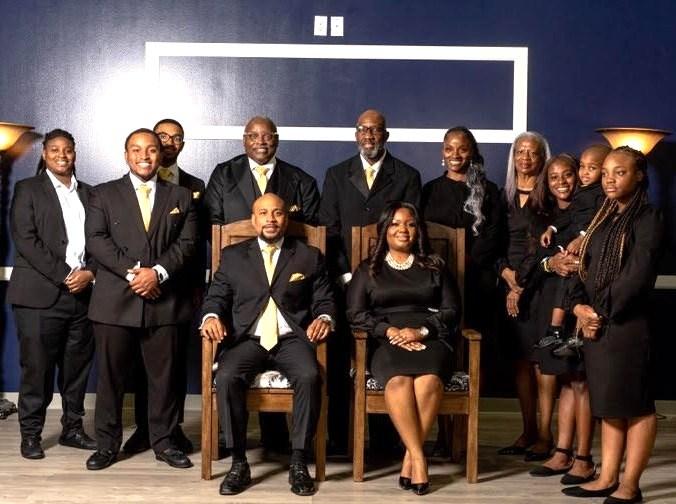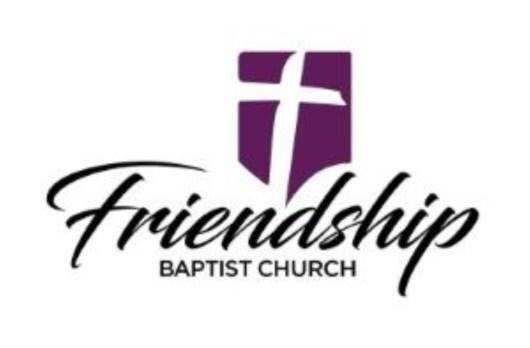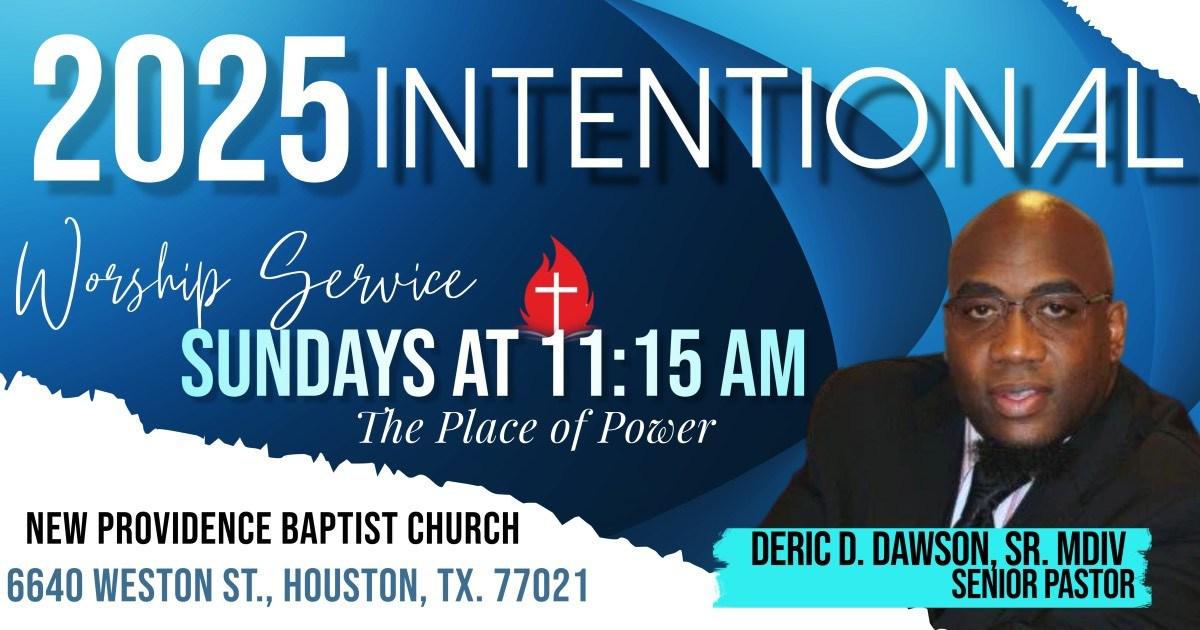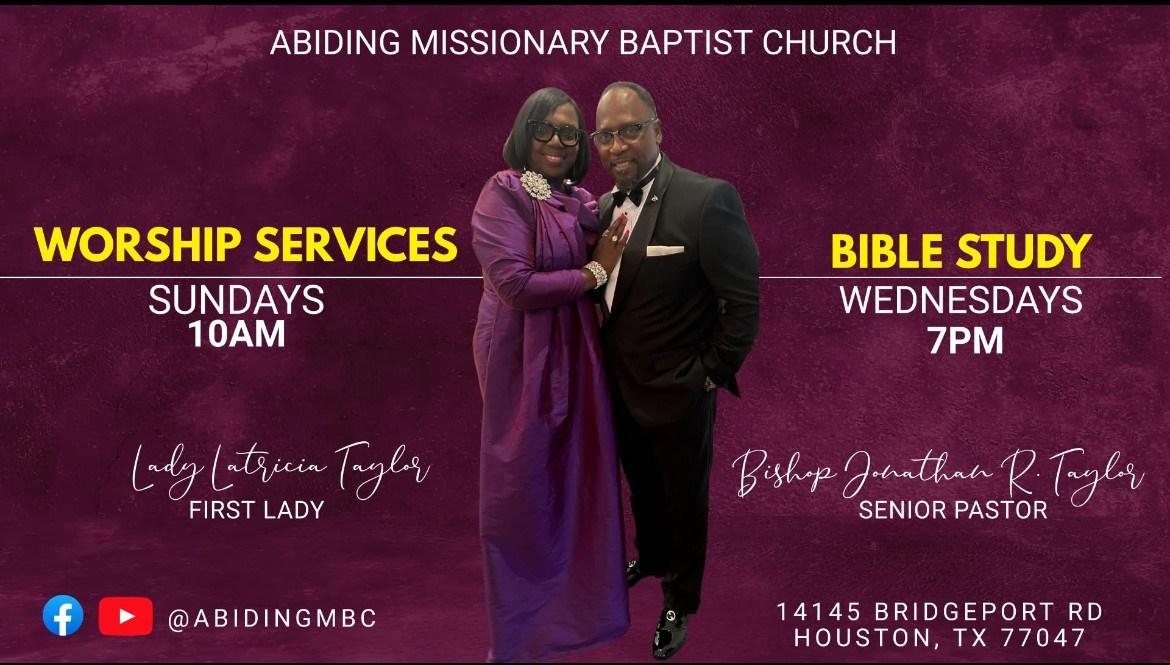

THE GOSPELREVIEW MAGAZINE
Issue 1 No. 19 January 2025

Welcome to the January 2025 edition of The Gospel Review, a magazine dedicated to exploring the intersection of faith, culture, and community through the lens of the Gospel. In a world where the pace of life accelerates and truth often feels elusive, The Gospel Review seeks to offer clarity, hope, and inspiration grounded in the timeless truths of Scripture.
Our mission is simple yet profound: to inform, equip, and challenge believers as we navigate the complexities of modern life. Each article, interview, and feature in this publication is crafted to deepen your understanding of God's Word, encourage you in your walk with Christ, and inspire you to engage your community with love and purpose.
In this issue, we delve into topics that are both relevant and thought-provoking. From reflections on the state of the church today to stories of individuals living out their faith in extraordinary ways, our aim is to highlight how the Gospel transforms lives and shapes culture. We also explore practical tools for spiritual growth, theological insights, and a closer look at global missions that remind us of our shared calling to make disciples of all nations.
As we embark on this journey together, we invite you to join us not just as readers but as partners. Share your stories, your challenges, and your triumphs. Let this magazine be a platform for dialogue and discovery as we collectively seek to glorify God in every area of life.
Thank you for being part of The Gospel Review. May these pages encourage you, strengthen your faith, and inspire you to live out the Gospel with boldness and grace.
In Christ,
Kevin B. Frederick President and CEO
The Gospel Review
Are you passionate about sharing the Gospel, reflecting on Scripture, or writing about faith in action? The Gospel Review welcomes your contributions! Whether it’s a devotional, a personal testimony, or an article on faith and culture, we’re excited to feature voices from our community.
To submit your work, email your article to gospelre-
view@outlook.com. Please include your name, contact information, and a brief bio. Submissions are reviewed by our editorial team, and we aim to respond within 2–3 weeks.
Subscribe to The Gospel Review
Stay connected with The Gospel Review! Our publication is distributed every third Tuesday of the month, and you have two convenient options for receiving it:
Email Delivery: Enjoy The Gospel Review for free by subscribing to our email list. Simply send a request to gospelreview@outlook.com with the subject line “Subscribe.”
Mail Delivery: Prefer a physical copy? A single issue by mail is just $3, or you can subscribe for the year at $20. To subscribe, send your request to gospelreview@outlook.com, and our team will guide you through the payment process. You can receive a copy of The GospelReview by E-Mail for free.
Don’t miss an issue of The Gospel Review a publication dedicated to equipping believers, sharing the Good News, and inspiring lives transformed by the Gospel.


The Heart of Thankfulness: Embracing Gratitude Through Scripture
In a world filled with busyness and challenges, cultivating a heart of thankfulness can transform our perspective and deepen our relationship with God. Scripture calls us to live lives of gratitude, reminding us that thankfulness is not just a feeling but an act of worship and faith. Let's explore how the Bible encourages us to embrace a thankful heart in all circumstances.
The Call to Thankfulness
The Bible commands us to be thankful in every situation. Paul writes in 1 Thessalonians 5:18, "Give thanks in all circumstances; for this is the will of God in Christ Jesus for you." This verse reveals that thankfulness is not conditional on our circumstances but is a reflection of God's sovereignty and goodness in our lives.
Gratitude shifts our focus from what we lack to what we have. Even in trials, we can find reasons to give thanks because God uses every situation for our good and His glory (Romans 8:28). This divine perspective allows us to trust that God is always at work, even in moments when gratitude feels challenging.
Thankfulness as Worship
A thankful heart is a heart of worship. The psalmist declares, "Enter his gates with thanksgiving, and his courts with praise! Give thanks to him; bless his name!" (Psalm 100:4). Thanksgiving is more than polite acknowledgment; it is an intentional act of honoring God for who He is and what He has done.
When we approach God with gratitude, we affirm His character His love, mercy, and provision. Psalm 136 is a powerful example, as it repeatedly proclaims, "Give thanks to the Lord, for he is good, for his steadfast love endures forever." Gratitude reminds us of God's enduring faithfulness throughout history and in our personal lives.
Gratitude in Trials
It is natural to feel grateful when life is going well, but the Bible challenges us to give thanks even in difficulties. James writes, "Count it all joy, my brothers, when you meet trials of various kinds, for you know that the testing of your faith produces steadfastness" (James 1:2-3). Trials refine our character, deepen our reliance on God, and ultimately strengthen our faith.
The apostle Paul, who endured immense suffering, exempli-
fies this attitude. In Philippians 4:11-13, he states, "I have learned in whatever situation I am to be content... I can do all things through him who strengthens me." Gratitude enabled Paul to find contentment and strength, even in prison. His life reminds us that thankfulness can coexist with hardship when we rely on God's grace.
Recognizing God's Blessings
To cultivate thankfulness, we must recognize God's blessings, both big and small. The Bible reminds us that every good gift comes from Him: "Every good gift and every perfect gift is from above, coming down from the Father of lights" (James 1:17). From the beauty of creation to the gift of salvation, God's blessings surround us daily.
Taking time to reflect on these blessings can foster a spirit of gratitude. Keeping a journal of answered prayers, daily provisions, and moments of joy can help us see God's hand in our lives. By acknowledging His faithfulness, we nurture a habit of thankfulness.
Thanksgiving and Community
Thankfulness is not only personal but also communal. Paul frequently encouraged believers to give thanks together, as seen in Colossians 3:16-17: "Let the word of Christ dwell in you richly... with thankfulness in your hearts to God. And whatever you do, in word or deed, do everything in the name of the Lord Jesus, giving thanks to God the Father through him."
Sharing testimonies of God's goodness can inspire gratitude in others and strengthen the faith of the community. When we gather in worship, our collective thanksgiving becomes a powerful testimony of God's work among His people.
Conclusion
Thankfulness is a choice, a discipline, and an act of faith. By anchoring our gratitude in God's character and promises, we can cultivate a heart of thankfulness that endures through every season. Let us follow the biblical call to give thanks in all circumstances, allowing gratitude to deepen our worship, strengthen our faith, and shine as a testimony to the world.
As we embrace thankfulness, we reflect the goodness of God and fulfill His will for our lives, proclaiming with the psalmist, "I will give thanks to the Lord with my whole heart; I will recount all of your wonderful deeds" (Psalm 9:1).
Life Insurance
Securing Your Family's Future
The Importance of Life Insurance: Securing Your Family's Future
Life insurance is a topic many people shy away from, often because it forces us to consider uncomfortable truths about mortality. However, it remains one of the most crucial financial tools for ensuring the security and stability of our loved ones. As financial uncertainties and responsibilities grow, life insurance serves as a safety net, offering peace of mind and economic stability in the face of life’s unexpected challenges.
A Financial Cushion for Loved Ones
One of the most compelling reasons to purchase life insurance is the financial protection it provides to family members. In the event of a policyholder's death, the insurance payout, known as the death benefit, can cover immediate expenses such as funeral costs, medical bills, and debts. For families dependent on a single income, this financial support can be the difference between maintaining their standard of living and struggling to meet basic needs.
Imagine a young family with children still in school. If the breadwinner were to pass away unexpectedly, the life insurance policy could help pay for the mortgage, education, and daily living expenses, enabling the family to focus on healing rather than financial survival.
Safeguarding Long-Term Goals
Life insurance is not just about covering immediate expenses; it’s also a tool to protect long-term financial goals. Policies can be structured to ensure that children's college education is funded, spouses are supported in retirement, or even to leave a financial legacy for future generations. This makes life insurance an essential component of comprehensive financial planning.
For business owners, life insurance can also provide critical funding in the event of an owner or key employee's death. Buy-sell agreements funded by life insurance policies ensure business continuity and stability during challenging times.
Contrary to common misconceptions, life insurance is often more affordable than people assume. Term life insurance, for instance, offers substantial coverage at relatively low premiums, making it accessible to families and individuals at various income levels. Whole life and universal life insurance, while more expensive, combine coverage with investment opportunities, potentially offering lifelong benefits.
Modern policies are also increasingly flexible, with options to customize coverage, add riders for specific needs, and even access living benefits in case of critical illnesses. This adaptability ensures that life insurance remains relevant and valuable across different life stages.
A Crucial Step Towards Financial Responsibility
Despite its clear benefits, a significant portion of the population remains uninsured or underinsured. This often stems from a lack of awareness, procrastination, or the mistaken belief that life insurance is unnecessary for those who are young and healthy. However, purchasing life insurance early often means securing lower premiums and guaranteeing protection when health issues arise later in life.
Life insurance is more than just a policy; it’s a commitment to your family’s future. By securing this financial safeguard, you can ensure that your loved ones are cared for, even in your absence. Whether you’re planning for short-term needs or long-term aspirations, life insurance provides the stability and peace of mind necessary to navigate life’s uncertainties.
Take the step today. Your family’s future is worth it.
Jones Family Mortuary

A CONVERSATION WITH REV. LARVARVIA JONES
The staff at GospelReview Magazine are pleased to bring you this personal and candid interview with the owner of the Jones Family Mortuary. I have known this young entrepreneur all his life and am proud that he and his family are making a difference in the mortuary business. The Jones Family Mortuary brings dignity and honor to the profession.
GRM - What inspired you to become a funeral director?
LJ - My decision to become a funeral director was inspired by a profound desire to support others during one of life's most difficult times. I felt a natural calling to offer care, empathy, and guidance to grieving families. At the age of 20, I began working in the funeral industry. Encouraged by my cousin, an experienced and licensed funeral director, I pursued studies at mortuary school. While interning at a local funeral home here in Houston, I realized my true passion for serving people during their moments of need.
GRM - What led you to open your funeral home?
LJ - After years of working for various companies and not achieving the career goals we had envisioned, we decided to forge our own path to success. On the first Sunday of January 2021, during our drive to church, I turned to my wife and said, “Let’s start our own funeral home.” After thoughtful consideration and prayer, she agreed, and within two months, we took a leap of faith and began our journey to establish Jones Family Mortuary.
We were blessed to find a prime location in the heart of the Greenspoint community in Houston, Texas. With limited funds
in our bank accounts but unwavering faith in God’s promises, we signed the lease, and construction began in March 2021.
In August 2022, we officially opened our doors and celebrated our Grand Opening, surrounded by family, friends, and colleagues from the funeral industry. This journey has been one of faith, trusting God to guide each step. We’ve witnessed Him open doors and provide for every need as we continue to walk by faith and not by sight.
GRM - What do you find most rewarding about your work?
LJ - The most rewarding part of being a funeral home owner is the opportunity to serve families during one of the most difficult moments of their lives. It’s deeply fulfilling to provide comfort, guidance, and support while helping families honor their loved ones with dignity and respect. Knowing that our work brings a sense of peace and closure to those we serve is incredibly meaningful. Additionally, building lasting relationships within the community and creating a legacy of care and compassion makes this work not just a profession but a calling.
GRM - What are some of the challenges you face as both a funeral director and a business owner?
LJ - As both a funeral director and a business owner, one of the significant challenges is balancing the demands of providing compassionate care to families while managing the operational and financial aspects of the business. As a newer firm, building and sustaining brand recognition in a highly competi-
tive industry is an ongoing effort. Competing with more established funeral homes that have deep-rooted community ties and long-standing reputations can be particularly challenging.
GRM - What is the vision or mission statement of your funeral home?
LJ“Celebrating Lives with Compassion & Care”
GRM - How do you differentiate your funeral home from competitors?
LJ - We differentiate Jones Family Mortuary by focusing on providing exceptional service rooted in genuine compassion and care. I often reflect on a powerful visual of a bread aisle filled with various brands, flavors, and textures each appealing to different preferences. This reminds me that, just like in that aisle, there is something unique for everyone.
At Jones Family Mortuary, we embrace this mindset by tailoring our services to meet the individual needs of each family. Our team goes above and beyond to ensure every detail is handled with professionalism, empathy, and a personal touch. We strive to create meaningful and memorable experiences that reflect the uniqueness of each loved one while offering families the support they need during such a sensitive time. This dedication to top-notch service sets us apart in the industry.
GRM - What is the most significant lesson you’ve learned as a funeral director?
LJ - The most significant lesson I have learned as a funeral director is that grief has no timeline, and each person’s journey through it is unique. This understanding reinforces the importance of treating every family with individualized care, compassion, and respect for their specific needs and emotions.
al resources and establish a trusted network of support. Currently, we are developing grief support programs, such as counseling sessions, support groups, and online resources, to help families beyond the funeral. As the industry evolves, we plan to stay ahead by investing in modern equipment, sustainable practices, and innovative service offerings. Additionally, we are committed to providing ongoing training and professional development for our staff to ensure they continue to deliver compassionate, high-quality service.
GMR - Why do you think burial insurance is important for families to consider?
LJ - By considering burial insurance, families can prepare for an inevitable expense in a thoughtful, manageable way. It alleviates a significant source of stress and allows them to focus on remembering and celebrating their loved one’s life.
GRM - What common misconceptions do you encounter about burial insurance?

LJ - "Burial insurance is unnecessary if I have life insurance." One of the benefits of burial insurance is that it locks in today's cost of funeral services.
GRM - How does burial insurance ease the financial burden on grieving families?
GRM - How do you balance the emotional demands of your work with your personal life?
LJ Balancing the emotional demands of our work with personal life requires setting boundaries. Since we work together at the funeral home and return home together, we make a conscious effort to leave certain tasks for the next day at the office. This approach allows us to focus on our own family needs, recharge, and return to work refreshed, ensuring we can continue to provide the high level of service our families deserve.
GRM - What are your long-term goals for your funeral home?
LJ - Our long-term goals for the funeral home include building deeper connections with the local community through outreach programs, seminars, and events focused on grief support, endof-life planning, and wellness. We also aim to partner with local organizations, churches, and hospices to offer education-
LJ - Burial insurance eases the financial burden on grieving families by covering core funeral expenses in advance. In many cases, the deceased has already selected items such as the casket, floral arrangements, and programs, which prevents the family from making emotionally driven purchases or overspending during a difficult time. This pre-planning ensures that families can focus on grieving and honoring their loved one, without the added stress of unexpected costs or decision-making.
GRM - In your experience, how does having burial insurance impact the decision-making process for families?
LJ - Burial insurance reduces the emotional pressure to make decisions quickly and prevents families from over-purchasing due to emotional impulses. With the financial aspect already covered, families can focus more on honoring their loved one, which allows them to grieve with less stress and uncertainty.
GRM - Do you believe burial insurance improves accessibility to more personalized or comprehensive funeral services?
LJ - Yes, burial insurance can make personalized and comprehensive funeral services more accessible. By covering essential costs upfront, it allows families to select services that reflect their loved one’s wishes without the stress of financial strain.
This gives them the freedom to choose more customized options, such as personalized memorials, special floral arrangements, or unique tributes, that they might otherwise find too expensive.
GRM - Why do you think some people avoid purchasing burial insurance despite its benefits?
LJ Some people avoid purchasing burial insurance due to a lack of understanding about its benefits, or because they see it as an uncomfortable topic to address. Others may believe they don't need it or may underestimate the rising costs of funeral services.

today’s rates amidst rising costs and ensures their final wishes are clearly documented, providing peace of mind for both them and their loved ones.
GRM - What advice would you give families when selecting a burial insurance plan that aligns with their funeral wishes?
LJ - When selecting a burial insurance plan, ensure it covers your desired arrangements, understand the policy terms, and involve your family in the process. Choose a reputable provider, and periodically review the plan to ensure it meets your needs as circumstances change.
GRM - How do you educate families about the importance of planning ahead, including securing burial insurance?
LJ - We educate families about the importance of planning ahead by hosting lunch-and-learn events, addressing it during planning sessions, and sharing information through our social media platforms. These efforts help keep families informed and empowered to make thoughtful decisions.
GRM - Does your funeral home provide assistance or partnerships with burial insurance providers?
LJ - Yes, we offer burial insurance and strongly encourage families to take advantage of it. This allows them to secure
GRM - How do burial insurance policies streamline or complicate the process of finalizing funeral arrangements?
LJ - Burial insurance policies play a crucial role in streamlining the process of finalizing funeral arrangements. They allow individuals to plan ahead by outlining their final wishes, which alleviates the emotional and financial burden on their families during a time of grief. By pre-selecting services and locking in current prices, these policies provide protection against inflation, ensuring families are not overwhelmed by unexpected costs as prices continue to rise.


STEPS TO PREPARE FOR DEATH
Steps to Prepare for Death: A Guide for Peace and Legacy
Death is an inevitable part of life, yet many avoid preparing for it, leaving their loved ones unprepared and their affairs in disarray. Taking steps to prepare for death not only provides peace of mind for oneself but also ensures a smoother transition for those left behind. Below are practical, emotional, and spiritual steps to consider in preparing for the end of life.
Legal and Financial Preparation
Create or Update Your Will
A will ensures that your assets are distributed according to your wishes. Without one, the state determines how your estate is divided, which may not align with your desires.
Establish a Power of Attorney
Appoint a trusted person to make financial and healthcare decisions on your behalf if you become incapacitated.
Review Life Insurance and Beneficiary Designations
Ensure your life insurance policies and other financial accounts have the correct beneficiaries listed.
Organize Financial Records
Compile a clear record of your financial accounts, debts, assets, and liabilities. Provide access to necessary documents like deeds, insurance policies, and investment accounts.
Consider End-of-Life Expenses
Pre-plan funeral or cremation arrangements, and, if possible, prepay for these services. This reduces the financial and emotional burden on loved ones.
Medical and Health Considerations
Draft an Advance Directive
This document outlines your preferences for medical care, including decisions about life support and resuscitation.
Discuss Wishes with Loved Ones
Have open conversations with your family about your desires regarding medical treatment and end-of-life care.
Emotional and Relational Preparation

Reconcile Relationships
Seek forgiveness, express love, and mend broken relationships. This can bring closure and peace for both you and others.
Communicate Your Legacy
Share your values, lessons, and blessings with loved ones. Writing letters or recording messages can leave a lasting impact.
Spend Quality Time
Make time for meaningful interactions with family and friends, creating memories that will last after you’re gone.
Spiritual Preparation
Reflect on Your Beliefs
Engage with your faith or spirituality to find peace and purpose in the face of death.
Seek Spiritual Guidance
Speak with a pastor, priest, or spiritual advisor to address questions or concerns about death and the afterlife.
Practical Tips for Getting Started
Start Early: Begin preparations while you are healthy and of sound mind.
Consult Professionals: Work with estate planners, attorneys, and healthcare professionals to ensure your wishes are legally and medically sound.
Review Periodically: Life circumstances change, so revisit your plans regularly to keep them up-to-date.
Preparing for death is not about morbidity but about care and responsibility for yourself and those you love. By addressing legal, medical, emotional, and spiritual matters, you can face the inevitable with peace and ensure your legacy reflects your values. Taking these steps now is a gift that speaks volumes about your thoughtfulness and love for your family and friends.
Preparing for Your Funeral Service
Preparing for your funeral service is not a topic most people eagerly embrace, yet it is an essential act of love and responsibility. It provides clarity for your loved ones during a challenging time and ensures your life is celebrated according to your wishes. This essay explores the practical, emotional, and spiritual aspects of preparing for your funeral service.
Practical Preparations
The first step in planning a funeral is addressing logistical details. Begin by deciding between burial and cremation. This decision often stems from personal beliefs, religious convictions, or family traditions. For instance, many faith traditions, such as Christianity or Islam, emphasize burial, while others, like Hinduism, often prefer cremation.
Next, select a funeral home. Research local establishments to find one that aligns with your values and budget. Speak with funeral directors to understand their offerings, including embalming, caskets, urns, and memorial packages. Many funeral homes provide pre-need arrangements, allowing you to prepay and specify your preferences, alleviating financial burdens for your family.
Choosing a final resting place is another critical aspect. If burial is your choice, you’ll need to select a cemetery plot. For cremation, consider whether you want your ashes scattered, stored in an urn, or interred in a columbarium.
Additionally, create a will or living trust to specify how your estate will be managed. Include a document outlining your funeral preferences, such as desired hymns, readings, or rituals. By addressing these practical matters, you relieve loved ones of difficult decisions during an emotionally fraught time.
Emotional Considerations
Preparing for a funeral involves acknowledging the emotional impact on your family and friends. Consider writing a letter or recording a message for your loved ones to express your affection and gratitude. These tokens can bring comfort and serve as lasting reminders of your love.
Encourage open discussions with your family about your wishes. This may initially feel uncomfortable, but transparency fosters understanding
and reduces potential conflicts. For example, if you desire a nontraditional service or specific cultural elements, explaining your reasoning helps your loved ones respect and honor your choices.
Some people create a legacy project, such as a scrapbook, video montage, or memoir, to leave a tangible mark on their family history. Sharing memories and lessons ensures that your values endure for generations.
Spiritual Reflections
For many, preparing for a funeral service is deeply intertwined with spiritual beliefs. Reflect on what matters most to you in life and how you wish to be remembered. Faith traditions often provide a framework for funeral practices, offering comfort and hope to those grieving.
If you are part of a religious community, meet with your spiritual leader to discuss your funeral plans. This includes selecting sacred texts, prayers, or rituals that reflect your faith journey. For example, Christians might choose passages like Psalm 23 or John 14:1-3, while Jews may incorporate the Kaddish or Psalms.
Even for those without specific religious affiliations, a funeral can be an opportunity for meaningful reflection. Consider incorporating poems, music, or personal stories that resonate with your philosophy of life and death. A eulogy that captures your unique essence can help mourners celebrate your life while finding closure.
Leaving a Lasting Legacy
The funeral service is ultimately about celebrating life and leaving a meaningful legacy. By preparing in advance, you ensure that the service reflects your values, beliefs, and personality. It is not merely about logistics but about creating a space for healing, gratitude, and remembrance.
Planning your funeral is an act of foresight and love. It allows you to shape how you are remembered while providing peace of mind to your loved ones. When approached with intention and care, it becomes a meaningful process that honors your life and supports those who will carry your memory forward.





Sunday




